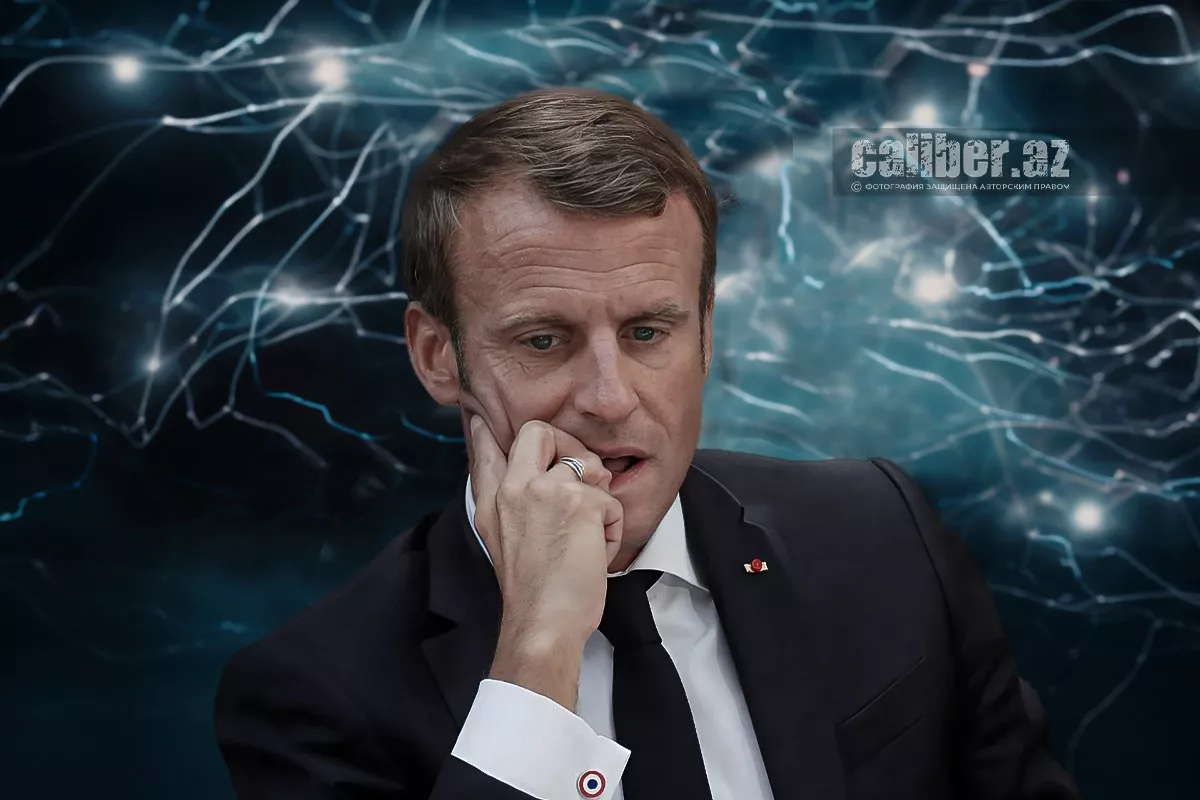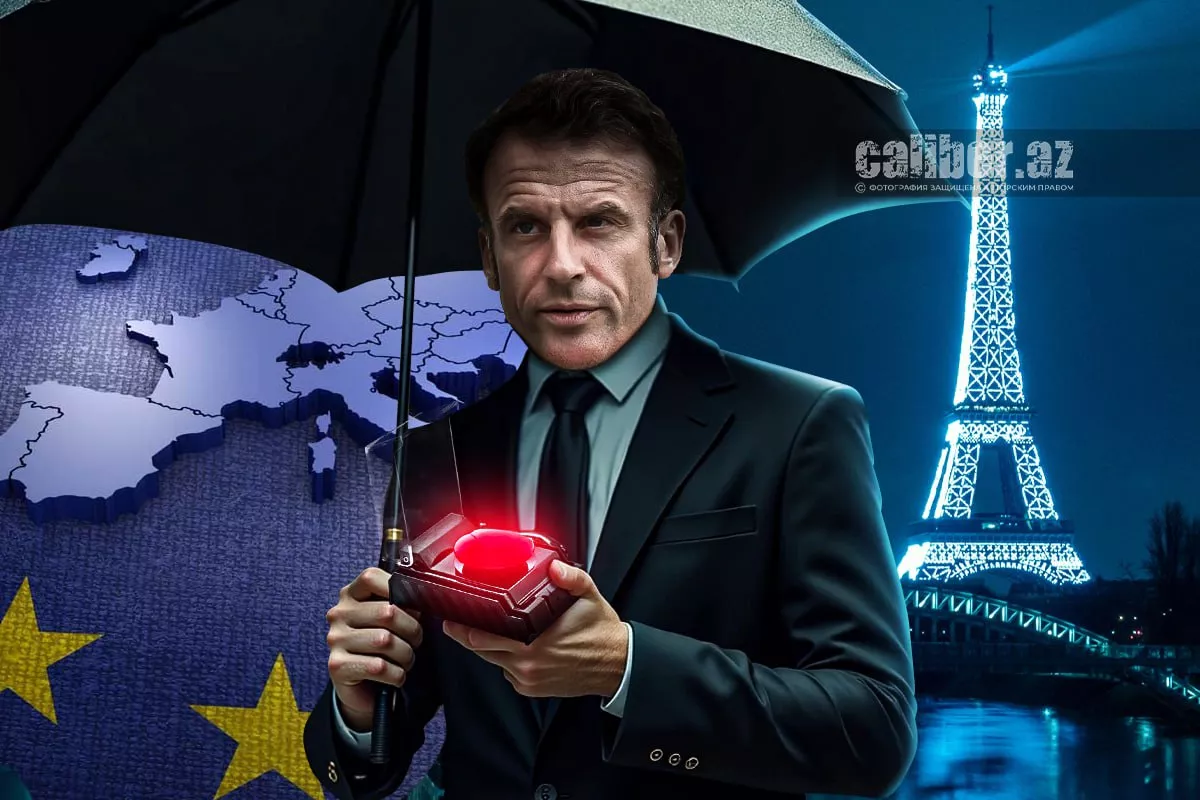Chronicles of Macron’s anti-records Crisis at home and failures abroad
Considered one of the leading countries in the European Union, France has rapidly lost its key positions in the international arena since Emmanuel Macron assumed the presidency. This is compounded by a volatile political and socio-economic situation within the republic and persistent gaps in monetary policy observed year after year. Taken together, these factors have led to a significant drop in the French leader’s approval rating among citizens of the Fifth Republic.
Overall, Macron’s rating in the country has fallen by 8 points, which experts consider a record decline compared to the poll results of his predecessors.
According to a survey by the Odoxa Institute, Emmanuel Macron has reached a record level of unpopularity — his approval rating stands at 22%, meaning that nearly four out of five French citizens (78%) consider him a “bad president.”
Meanwhile, the ranking is led by the head of the National Rally party, Jordan Bardella, and his predecessor Marine Le Pen, who received 37% and 36% positive ratings, respectively. Interestingly, the approval rating of France’s new Prime Minister Sébastien Lecornu stands at 32%, which is 10 points higher than that of Macron himself and former Prime Minister François Bayrou.

A significant drop in Emmanuel Macron’s approval rating was also highlighted by Le Figaro, which estimated it had fallen to a record-low 15%: “According to a study by the Verian sociological service, published in Le Figaro Magazine, only 15% of French citizens approve of the head of state’s performance.” The newspaper also noted that Macron’s level of distrust has reached 80%, marking the worst rating since his election in 2017.
Earlier, Le Journal du Dimanche (JDD), citing results from the French Institute of Public Opinion (IFOP), also reported that the French president’s approval rating had dropped to a record 19%.
International analysts, in turn, note that current approval ratings are even lower than during the peak of the “Yellow Vest” crisis in 2018, when only 20% of citizens supported the president. According to them, 80–90% of French citizens would like to see Macron resign, though given the structure of the French political system, this is nearly impossible.
At the same time, it is worth noting that France has repeatedly overcome periods of collapse and revival throughout its history. In the 1930s, for instance, the country was struck by the Great Depression, which lasted until the end of the decade and severely affected economic growth. After World War II, in 1945, France entered an era of social reconstruction and industrial expansion. Then, in 1958, amid the Algerian crisis and the collapse of the Fourth Republic, General Charles de Gaulle carried out an institutional reset, establishing the Fifth Republic with strong presidential powers. However, as history shows, France at that time was led by wise politicians and strategists.
Today, the problem facing the Fifth Republic is that the country is led by a leader with imperial ambitions in foreign policy—ambitions that have already suffered significant setbacks across a wide geographic scope, from Africa to the South Caucasus. After the withdrawal of French troops from Mali, Niger, and Burkina Faso, Paris began reducing its military presence in Senegal and Chad, leaving forces only in Djibouti and Gabon, thus losing its foothold on the African continent.
Regarding the South Caucasus, Macron’s France repeatedly attempted to interfere in Azerbaijan’s internal affairs. At the same time, official Paris openly supported Armenian separatism in Karabakh, backed revanchist ambitions in Armenia, supplied Yerevan with lethal weapons, and encouraged the Armenian leadership to start a new war in the region. However, on August 8 of this year, in Washington, all of Macron’s plans were decisively thwarted: in the presence of the leaders of Azerbaijan, the United States, and Armenia, the foreign ministers of the two countries initialled a peace agreement between Baku and Yerevan.

However, these failures in foreign policy did not seem to faze Macron; he simply shifted his focus to another area—nuclear capabilities.
“The French nuclear umbrella exists. I am currently working on updating our doctrine and would like to continue deepening our strategic dialogue with Europeans who are interested. In any case, the European dimension has existed since 1962. At the beginning of 2026, I will deliver a speech on nuclear doctrine,” he stated in an interview with FAZ.
This statement by the French head of state can be interpreted as a call for an arms race, encouraging a dangerous trend of nuclear militarisation—a move that was strongly condemned just days ago by IAEA Director General Rafael Grossi.
“I think what we are seeing in general is that there is an increase in nuclear armament as opposed to disarmament. So countries are improving and increasing their nuclear arsenals,” he said, sending this message to all nations, including France.
However, it seems that in his excessive ambitions, Emmanuel Macron considers himself above the rest of the world. Rather than addressing the pressing problems within his own country—unresolved issues that are bound to have negative consequences for him in the near future—he is attempting to gain political points by playing the “nuclear briefcase” card.








